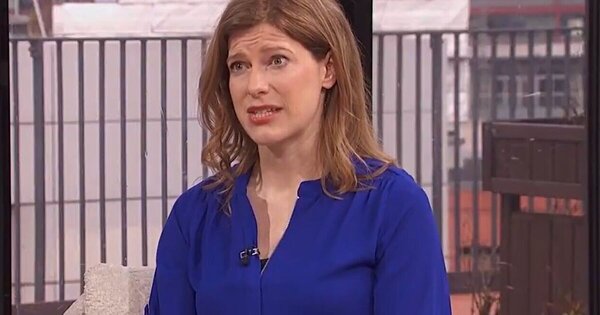Labour’s Rising Star in the Treasury Faces Scrutiny Over Tax Past
Torsten Bell, the Labour MP for Swansea West, has enjoyed a rapid political rise since entering Parliament in July 2024. Appointed in January 2025 as both Parliamentary Secretary to the Treasury and Under-Secretary of State for Pensions, he now holds a dual ministerial role at the heart of government.
Bell’s background as a policy thinker and former chief executive of the Resolution Foundation has earned him a reputation as one of Labour’s brightest economic minds. Yet his record also attracts controversy. At the Resolution Foundation, he advocated for sweeping tax reforms including significant hikes in capital gains tax, lower VAT thresholds, and new levies on landlords and pensions. These ideas, although not adopted as government policy, now raise questions about how much influence Bell might wield over Labour’s fiscal agenda at a time of rising debt, union pay disputes, and public financial strain.
From Think Tank to Westminster
Before his election, Bell spent nearly a decade (2015–2025) leading the Resolution Foundation, a think tank focused on improving living standards. There, he became known for detailed research and bold proposals that challenged the UK’s tax and welfare status quo.
His election as MP for Swansea West in 2025 marked a shift from policy commentary to frontline politics. Within months, his appointment as a junior minister in both the Treasury and the Department for Work and Pensions (DWP) underlined Labour’s confidence in his expertise.
The Scope of His Government Role
Bell’s current posts give him oversight in two critical areas: supporting the Treasury in fiscal matters and shaping pension policy within the DWP. His appointment followed a cabinet reshuffle after Tulip Siddiq’s resignation, with Emma Reynolds moving to a senior post and Bell stepping into her place.
Although some commentators have branded him a “Budget architect,” official records suggest his role is more supportive than decisive. The Chancellor, Rachel Reeves, remains the chief authority over Budget decisions, with Bell acting as a junior minister rather than a co-strategist.
A Controversial Tax Legacy
Bell’s tenure at the Resolution Foundation is central to his current reputation. Among the proposals advanced during his leadership were:
- Raising Capital Gains Tax to 37% on shares and up to 53% on real estate gains.
- Applying CGT on death and when individuals move abroad.
- Reducing the VAT registration threshold to £30,000, which would bring many more small businesses into the VAT system.
- Introducing National Insurance on landlord income and on employer pension contributions.
Supporters of these measures argue they would make taxation fairer and close loopholes that benefit wealthier households. Critics warn they would damage investment, reduce pension savings, push up rents, and overburden small firms.

The Wider Fiscal Context
Bell steps into the Treasury at a challenging moment. The government faces escalating costs of servicing its debt as bond yields rise, while public sector unions continue to demand pay rises through industrial action. Labour has promised stability but is under pressure to raise revenue without increasing hardship for households already stretched by high living costs.
In this environment, Bell’s reputation as a pro-tax reformer makes him both a valuable asset and a lightning rod for criticism. His presence fuels speculation about whether Labour will edge towards wealth-focused taxation in its 2025 Budget.
Influence or Overstatement?
Some political commentators suggest Bell could overshadow Reeves with his intellectual firepower. However, insiders stress that his current position is junior, with no direct authority over Budget setting. His influence lies in contributing ideas and providing analysis rather than dictating policy.
That said, Bell’s trajectory indicates Labour sees him as a rising figure. If he continues to gain ground within the Treasury, his past ideas on taxation may carry more weight in shaping the government’s longer-term approach to revenue.
What Torsten Bell Means for UK Taxpayers
Bell’s new role naturally sparks questions for ordinary taxpayers. While his past think tank work proposed policies that could impact small businesses, landlords, and pension savers, his current position does not give him direct control over Budget measures. Still, his proximity to Treasury decision-making means his views could filter into debates about wealth taxation, reliefs, and fairness.
For self-employed workers, freelancers, and small firms already juggling complex tax rules, the possibility of a lowered VAT threshold or new NI charges is a particular worry. At the same time, PAYE employees many of whom often miss out on legitimate tax reliefs may welcome his focus on closing loopholes.
In short: Bell’s presence may not change this year’s tax bill, but his ideas could shape future reforms that affect how people work, save, and invest.

Final Summary
Torsten Bell’s appointment as a junior minister at both the Treasury and DWP marks a significant step in a fast-moving political career. His reputation as a sharp thinker with a record of bold tax ideas ensures his name will remain central to debates about Labour’s economic direction.
For now, claims that he is the “architect” of the Budget appear exaggerated. Yet his presence in the Treasury at a time of financial strain ensures his past views and his future influence will be closely watched. Whether his controversial tax agenda remains think-tank theory or seeps into Labour’s policymaking could shape both the government’s fiscal path and Bell’s own political future.










